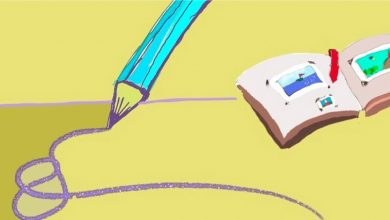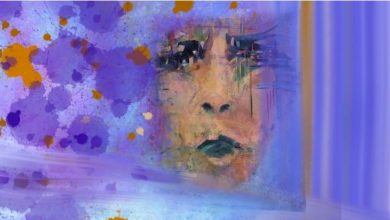What drives you as a learner? Value assessment
There is always a reason why we want to learn. What would we like to achieve? What is the driving force for the process of learning? What makes us satisfied? One of the magic ingredients of a recipe for fulfilled life would be living a life according to one’s own values. This article will introduce the idea of values and offer an exercise based on Rokeach Value Survey.

Why did I choose this tool?
Part of the competence of learning to learn is self-assessment of your own development. To know where we are heading to, first of all it is important to understand why we are doing this. RVS could help the learners to understand their own ecosystem and may inspire them for new actions in terms of future learning.
How does this apply to being a trainer?
In the area of learning to learn it is important to be aware of the purpose of our work and the values that are leading us in the process of teaching and one’s own learning. Assessing our fulfillment and integrity will most probably activate new directions of our development.
Content:
Values are a hidden power. They are the core purpose of our actions, a fuel in the engine of life. Life against our values can result in inner conflict and turn into giant impasse.
It is extremely important to be aware of your own value ecosystem and to use it as compass in everyday actions.
The Rokeach Value Survey (RVS) is a values classification instrument, developed and published in the book “The Nature of Human Values”(1973). This instrument is designed for rank-order scaling of 36 values, including 18 terminal and 18 instrumental values. Terminal values are “end result” values describing what you want to get out of life. Instrumental values are the ways you seek to accomplish your terminal values. I would say terminal values are describing our vision of life, while instrumental values describe our mission.
One doesn’t go without the other.
Excercise 1
Terminal Values:
- Analyze Terminal Values, give them your definition (value sheet).
- Put each value in a priority order – #1 matters most, #18 matters least – for how much each value matters to you. Pick 5 top values and describe them. How much are they present in the vision of your life right now?
____________________________________________________________________
____________________________________________________________________ - What could you improve or change to make those values more present in your vision?
____________________________________________________________________
____________________________________________________________________ - How would your personal development and learning strategy support these 5 values?
____________________________________________________________________
____________________________________________________________________
| NR | Terminal Values | Your understanding of each value |
| True Friendship | ||
| Mature Love | ||
| Self-Respect | ||
| Happiness | ||
| Inner Harmony | ||
| Equality | ||
| Freedom | ||
| Pleasure | ||
| Social Recognition | ||
| Wisdom | ||
| Salvation | ||
| Family Security | ||
| National Security | ||
| A Sense of Accomplishment | ||
| A World of Beauty | ||
| A World at Peace | ||
| A Comfortable Life | ||
| An Exciting Life |
Excercise 2
Instrumental Values:
- Analyze Instrumental Values, give them your definition (value sheet).
- Put each value in a priority order – #1 matters most, #18 matters least – for how much each value matters to you? (To do that print those values, cut them, and paste on a different sheet of paper in the right order: from the most important value at the top to the least important value at the bottom).
- Pick 5 top values and explain how they are manifested in your everyday actions?____________________________________________________________________
____________________________________________________________________ - What could you improve, or change to make those values more integrated with your actions?
____________________________________________________________________
____________________________________________________________________ - How your personal development and learning strategy could support these 5 values?
____________________________________________________________________
____________________________________________________________________
| NR | Instrumental Values | Your understanding of each value |
| Cheerfulness | ||
| Ambition | ||
| Love | ||
| Cleanliness | ||
| Self-Control | ||
| Capability | ||
| Courage | ||
| Politeness | ||
| Honesty | ||
| Imagination | ||
| Independence | ||
| Intellect | ||
| Broad-Mindedness | ||
| Logic | ||
| Obedience | ||
| Helpfulness | ||
| Responsibility | ||
| Forgiveness |
Excercise 3
My compass of development.
Materials: A4 paper, scissors, glue, colorful markers and magazines with pictures, postcards etc.
Write down on a A4 paper your top five terminal and instrumental values (use markers).
Put your terminal values in the center of the paper and instrumental values around them.
Look in magazines for visual representations of chosen values.

Cut the chosen images and paste them covering the words (written values).
As a result you will have a colorful mosaic full of different images representing your values.
Put it in a visible place in your room, office or in seminar room. Treat it as your compass in everyday actions.
You may also take a picture of your mosaic and upload it as a background image on your Smartphone screen.
Reflection questions
- What have you learnt about yourself?
- How is this exercise connected to your learner path?
- How could you adapt this reflection to your learning strategy?





